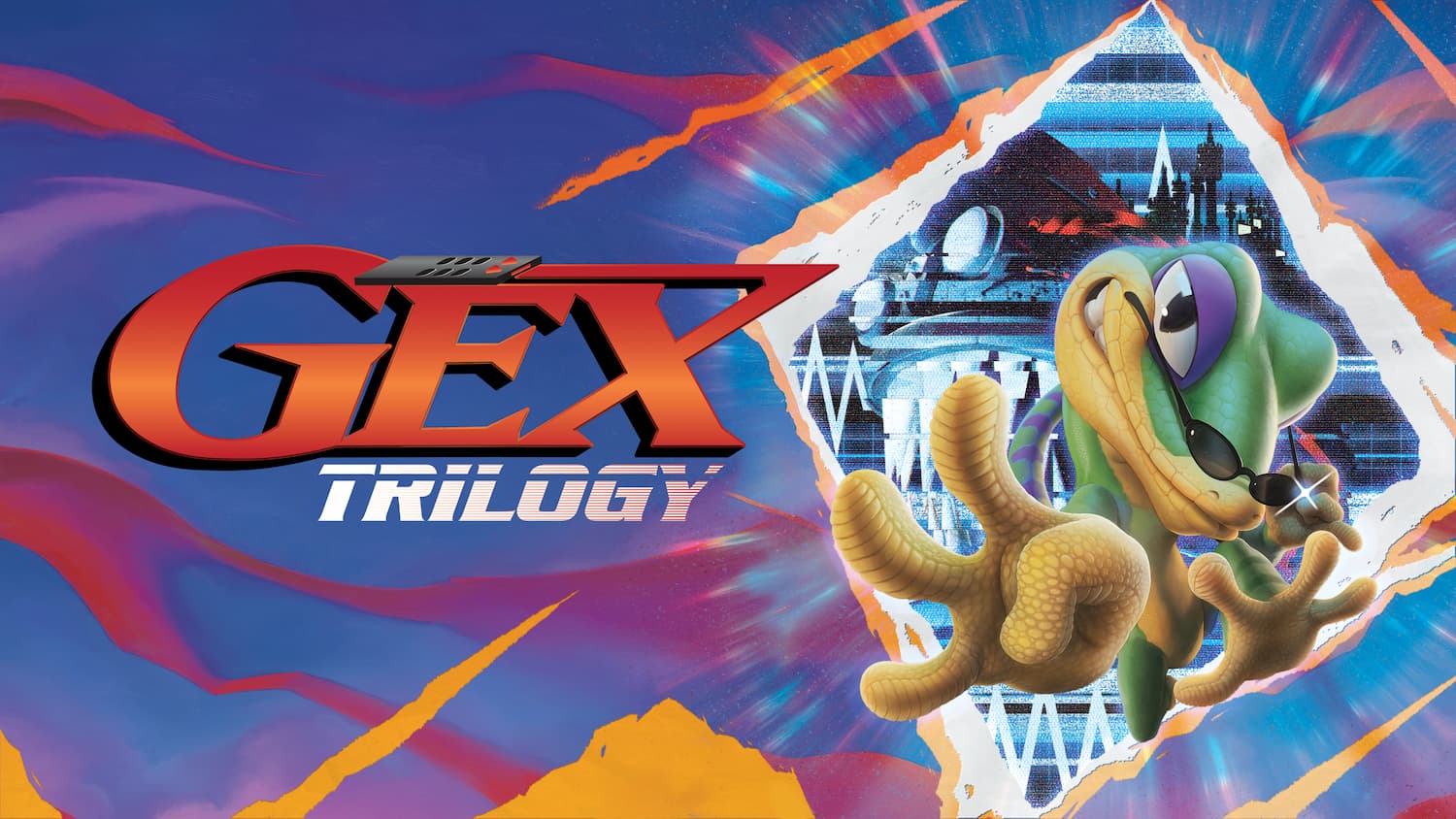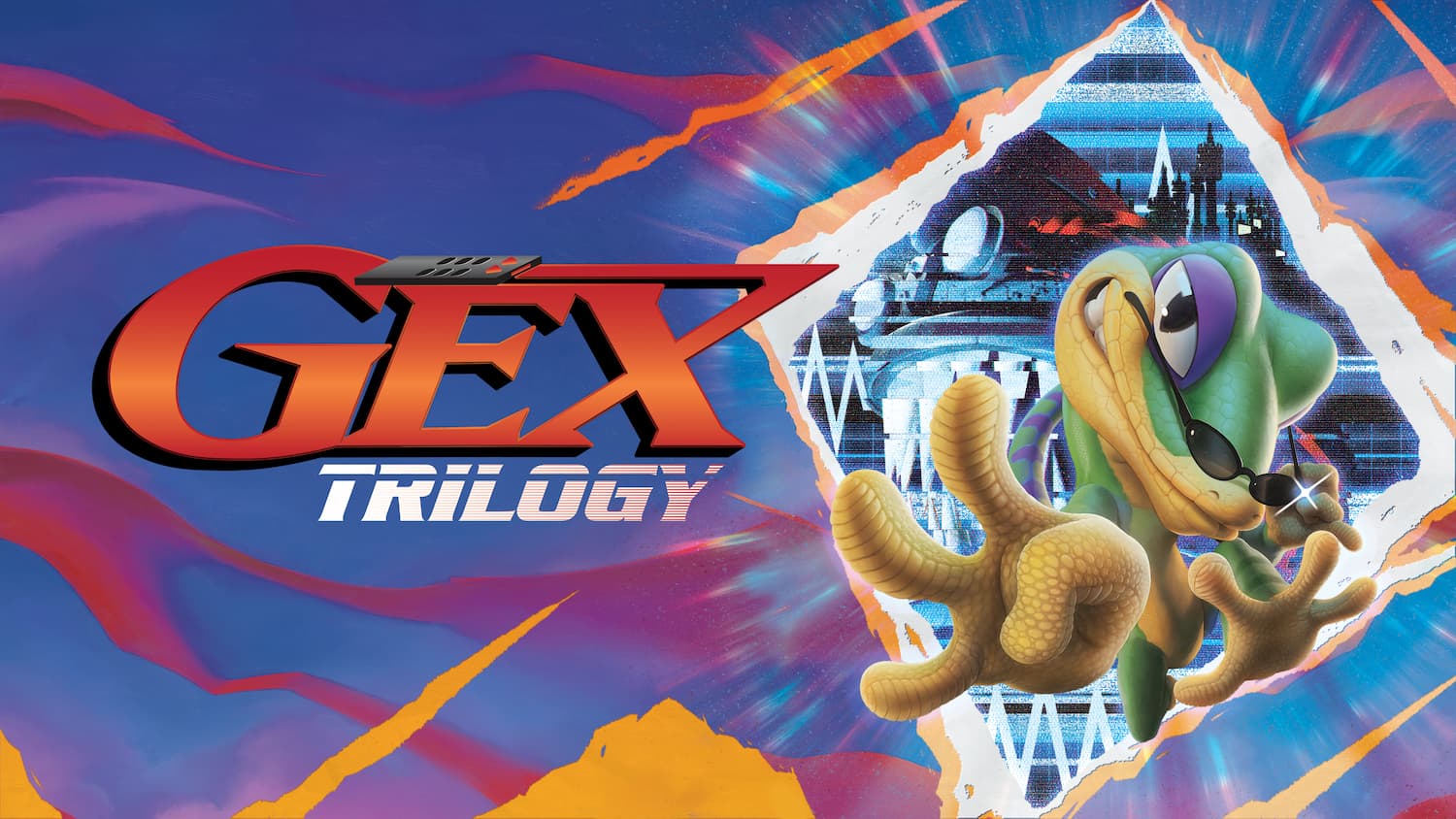Gex Trilogy review – A retro remaster of one of the ’90s biggest fever dreams
Few games from my childhood dug their claws into my memory like Gex: Enter the Gecko. But as older consoles and games became increasingly more difficult to acquire, I thought Gex's edgy voice lines and eccentric level designs would forever stay as memories tucked deep in my psyche. That was until I got my hands on a review copy of Limited Run Games' Gex Trilogy, a remastered version of all three games from the OG series: Gex (1995), Enter the Gecko (1998), and Deep Cover Gecko (1999). https://www.youtube.com/watch?v=tq1P2Vu8v5o&ab_channel=LimitedRunGames The series follows a TV-surfing Gecko named Gex who likes to smack enemies with his tail, which he so lovingly (and frequently) refers to as “tail time.” Although the franchise started as a 2D platformer, the sequels, Enter the Gecko and Deep Cover Gecko, granted players more freedom by adding an extra dimension. Each entry in the series hit shelves between 1995 and 1999, and the franchise as a whole is known for leaning heavily into pop culture and sociopolitical references from the decade. The highlights of this remaster include new rewind and save features, improved controls, updated visuals for modern consoles, an achievement system, and wide-screen support. It runs through the Carbon Engine, what Limited Run Games describes as its “in-house, proprietary engine for bringing retro games to modern platforms through emulation.” And “emulation” is the key here; Limited Games says the goal here was authenticity, so don’t expect any major content additions or alternative gameplay approaches. With that in mind, the Gex Trilogy masterfully maintains the charm, 90s humor, and fun gameplay from the original games. This remaster feels polished on PC with minimal to no bugs, and the added features only benefit the original gameplay. However, some of the original trilogy’s problems make this a niche title that will likely only appeal to retro gamers or those who’ve fallen deep into a pit of nostalgia like me. Image via Limited Run Games For those of you who haven't played the trilogy, the gameplay is fairly simple: In each level, you must hop your way from platform to platform, defeat enemies by hitting them with your tail, and hunt for TV remotes by completing objectives. Each level has multiple objectives you must complete one at a time—and yes, you have to replay a level several times to collect all the remotes. Add in additional collectibles and hidden objectives, and you’ll be running through the same map multiple times. Luckily, each level is short, making the work of fully completing each level easy and thus fairly addictive. I also opted to bounce back and forth from one to the other to further prevent the same environments from becoming stale. New maps open up as you collect remotes, and you’ll occasionally be tasked with fighting bosses before you can advance to the next stage of levels. It’s a simplistic, but fun gameplay loop, and each entry into the series expands on the gameplay just enough that the core mechanics of tail-whipping, tail-bouncing, and lapping up flies with your tongue largely stay the same. What separates Gex from other platformers of its time, though, was its metaplay on the culture of the ‘90s. As soon as you load into a level, you’re treated to Gex's shmoozey Austin Powers impression or sarcastic jab at the late fitness guru Richard Simmons. Some of the humor is just downright silly, like entire levels playing off of Looney Tunes and other '90s cartoon aesthetics. I'd be remiss, though, not to point out how '90s humor won't always translate to today's day and age. Other levels in Gex and Enter the Gecko (as the names Kung Fuville or Samurai Night Fever might suggest) play into stereotypes of other cultures, and some may find this offensive.


Few games from my childhood dug their claws into my memory like Gex: Enter the Gecko. But as older consoles and games became increasingly more difficult to acquire, I thought Gex's edgy voice lines and eccentric level designs would forever stay as memories tucked deep in my psyche.
That was until I got my hands on a review copy of Limited Run Games' Gex Trilogy, a remastered version of all three games from the OG series: Gex (1995), Enter the Gecko (1998), and Deep Cover Gecko (1999).
The series follows a TV-surfing Gecko named Gex who likes to smack enemies with his tail, which he so lovingly (and frequently) refers to as “tail time.” Although the franchise started as a 2D platformer, the sequels, Enter the Gecko and Deep Cover Gecko, granted players more freedom by adding an extra dimension. Each entry in the series hit shelves between 1995 and 1999, and the franchise as a whole is known for leaning heavily into pop culture and sociopolitical references from the decade.
The highlights of this remaster include new rewind and save features, improved controls, updated visuals for modern consoles, an achievement system, and wide-screen support. It runs through the Carbon Engine, what Limited Run Games describes as its “in-house, proprietary engine for bringing retro games to modern platforms through emulation.” And “emulation” is the key here; Limited Games says the goal here was authenticity, so don’t expect any major content additions or alternative gameplay approaches.
With that in mind, the Gex Trilogy masterfully maintains the charm, 90s humor, and fun gameplay from the original games. This remaster feels polished on PC with minimal to no bugs, and the added features only benefit the original gameplay. However, some of the original trilogy’s problems make this a niche title that will likely only appeal to retro gamers or those who’ve fallen deep into a pit of nostalgia like me.

For those of you who haven't played the trilogy, the gameplay is fairly simple: In each level, you must hop your way from platform to platform, defeat enemies by hitting them with your tail, and hunt for TV remotes by completing objectives. Each level has multiple objectives you must complete one at a time—and yes, you have to replay a level several times to collect all the remotes. Add in additional collectibles and hidden objectives, and you’ll be running through the same map multiple times. Luckily, each level is short, making the work of fully completing each level easy and thus fairly addictive. I also opted to bounce back and forth from one to the other to further prevent the same environments from becoming stale.
New maps open up as you collect remotes, and you’ll occasionally be tasked with fighting bosses before you can advance to the next stage of levels. It’s a simplistic, but fun gameplay loop, and each entry into the series expands on the gameplay just enough that the core mechanics of tail-whipping, tail-bouncing, and lapping up flies with your tongue largely stay the same.
What separates Gex from other platformers of its time, though, was its metaplay on the culture of the ‘90s. As soon as you load into a level, you’re treated to Gex's shmoozey Austin Powers impression or sarcastic jab at the late fitness guru Richard Simmons. Some of the humor is just downright silly, like entire levels playing off of Looney Tunes and other '90s cartoon aesthetics. I'd be remiss, though, not to point out how '90s humor won't always translate to today's day and age. Other levels in Gex and Enter the Gecko (as the names Kung Fuville or Samurai Night Fever might suggest) play into stereotypes of other cultures, and some may find this offensive.

Your biggest enemy in the Gex games, though, isn’t Elmer Fudd-like hunters or MooShoo Pork, a ferocious cow-pig hybrid—it’s sometimes the game its very self. In the first game of the trilogy, for example, some of the input felt delayed or too slow, and for a platformer, this can have a serious impact. Though it was annoying at times, it never obfuscated my playthrough to the point of full-on frustration.
I encountered my biggest pain point, though, when I revisited my old stomping grounds, Enter the Gecko. In the second game of the trilogy, you can choose from one of three camera options: manual, semi-automatic, and automatic. After a few brief nausea-inducing moments with the latter two options, I ended up sticking with the manual setting. But even with this option selected, I still found myself battling the camera—and growing more frustrated when I seemingly lost. I can’t tell you the number of times I teed up for a leap between platforms, only for Gex to fall flat on his face at the bottom of a chasm because the camera rotated away from the action in the moment I chose to jump.
These camera woes were present in the original game and served as a point of criticism from fans all those years ago. The third entry in the franchise, Deep Cover Gecko, addressed this, narrowing the camera options down and making it work more for players instead of against them. Although you could point back to Limited Run's emphasis on "authenticity" and "emulation" here as an excuse, it would've been nice to have kinks like this ironed out from the originals before they got repackaged with a few new features and sold back to us for $30.
But of all the old games from my childhood that could’ve received a remaster, am I happy it’s the Gex trilogy? Yeah, I am—and I would recommend it to anyone who also felt a rush of nostalgia when they saw the remaster's initial announcement. Unfortunately, though, I’d have to tell those of you whose birth year starts with a two to sit this one out simply because it loses a large part of its charm if you don't understand the references.
Regardless of your age, this could be right up your alley if you love retro games, specifically platformers. Buyer beware, though: The ‘90s jank is still very much present in Gex Trilogy. If you can look past the original gameplay flaws and potentially dated humor, you're in for a good time—tail time, some would say.
The post Gex Trilogy review – A retro remaster of one of the ’90s biggest fever dreams appeared first on Destructoid.



















































































































































































.jpg)














































































